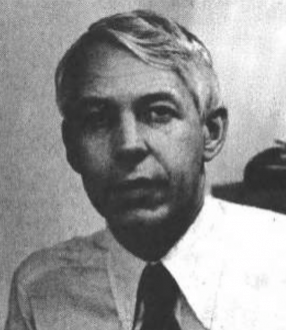Several people accusing Dr. Richard Strauss of sexual abuse during his time at Ohio State are hoping to speak at the full Board of Trustees’ meeting on Nov. 16, according to a press release from Judy Peterson, a spokeswoman at EJV Communications, the firm handling public relations for several accusers.

Richard Strauss, a former wrestling team physician and an assistant professor of medicine, is being investigated by Ohio State on allegations of sexual misconduct. Credit: Lantern file photo
The group does not know if it will be allowed to speak to the Board yet and is currently working to make a formal request, but would have four publicly identified victims speak at the meeting, Peterson said.
Brian Garrett, who said he was abused by Strauss at a private clinic in 1996, said he has not spoken with Ohio State since making his accusations publicly and was only interviewed by Perkins Coie — the Seattle-based law firm handling the investigation — once in June. He would be one of the first to speak to the Board if the accusers are given the chance to speak.
“[Ohio State has] not done one ounce of anything to reach out to the victims to be useful or helpful. Zero. Nada. Nothing,” Garrett said, adding that everything he’s learned about progress in the investigation has come through the media.
“That’s why it’s kind of disappointing. And the lawyers have offered to mediate and sit down with them several times to talk and they’ve denied them all,” he said.
Ohio State spokesman Chris Davey said the university has not received a formal request to the university to speak at the board meeting, but “the university will work with victims to ensure that at the appropriate time and place they have the opportunity to be heard.”
Peterson said in the press release that Ohio State held a closed-doors executive session Monday “just days after being served with an amended lawsuit filed on behalf of Dr. Richard Strauss’s victims.”
According to a press release from Ohio State sent out Friday, the executive session discussed several topics, including “to consult with legal counsel regarding pending or imminent litigation.”
Strauss has been accused of sexually abusing hundreds of former student-athletes and students during his time at Ohio State between 1978 and 1998. He also ran a private clinic from 1996 to 1998
where more acts of sexual misconduct are alleged to have taken place, the university said. The investigation is also looking into claims he abused high school students while employed by Ohio State, the university said.
The university filed a motion on Sept. 7 to dismiss the three federal lawsuits it currently faces from accusers on statute of limitations, which allows Title IX cases in Ohio to be dismissed if two years pass after the alleged events took place. Garrett said from what he’s heard from “back channels,” the university is going to deny responsibility and offer counseling sessions to the victims.
“That’s their method of helping the victims out,” Garrett said. He also said the outcome he’d like to see is for “OSU to accept responsibility and tell us how they’re going to change and prevent it from happening again.”
Garrett said he spoke with legislators at the Ohio House of Representatives in early preliminary talks to have the statute of limitations laws changed in the state, citing the ruling by the Michigan State Senate to extend the statute of limitations in the Larry Nassar sexual assault case.
“At these meetings, they had the lawsuits and the statute of limitations changes from Michigan and had example sample legislation for the congressmen,” Garrett said. “They were very prepared and had lots of examples on how to move forward to get that taken care of.”
Garrett said another accuser — Steven Snyder-Hill, whose allegations have been made public — came forward with documentation in 1995 to the university to prove he had been abused by Strauss during a shoulder exam. If the university had taken Snyder-Hill’s account more seriously, Garrett’s abuse from Strauss could have been avoided, he said.
“Mine was 100 percent avoidable and it makes me sicker by the day that they won’t take accountability for this,” Garrett said. “So I want to know why they blew off Steven.”
Perkins Coie said at the last public Board of Trustees’ session in August that the number of Strauss accusers interviewed had reached 145 and that more than 335 former students and university staff have also been interviewed.
Garrett said other victims have tried to get in contact with the university and that they’ve only spoken to Perkins Coie investigators once and have not heard back after that.
Davey said the independent investigative team does not reach out to possible victims “due to the risk of re-traumatizing those who may have been affected and do not wish to revisit the experience.”
“They tried to make it a ‘Oh, this is the standard legal thing,’” Garrett said. “That’s just kind of a slap in the face. I don’t buy that at all.”


